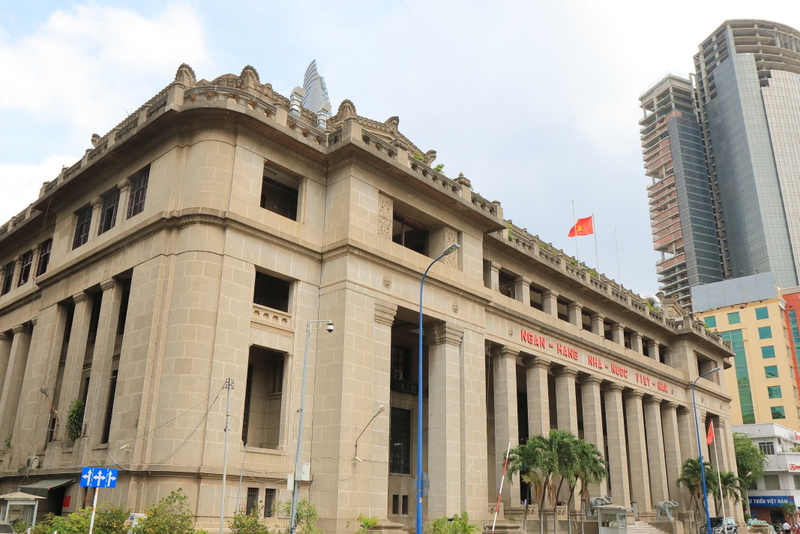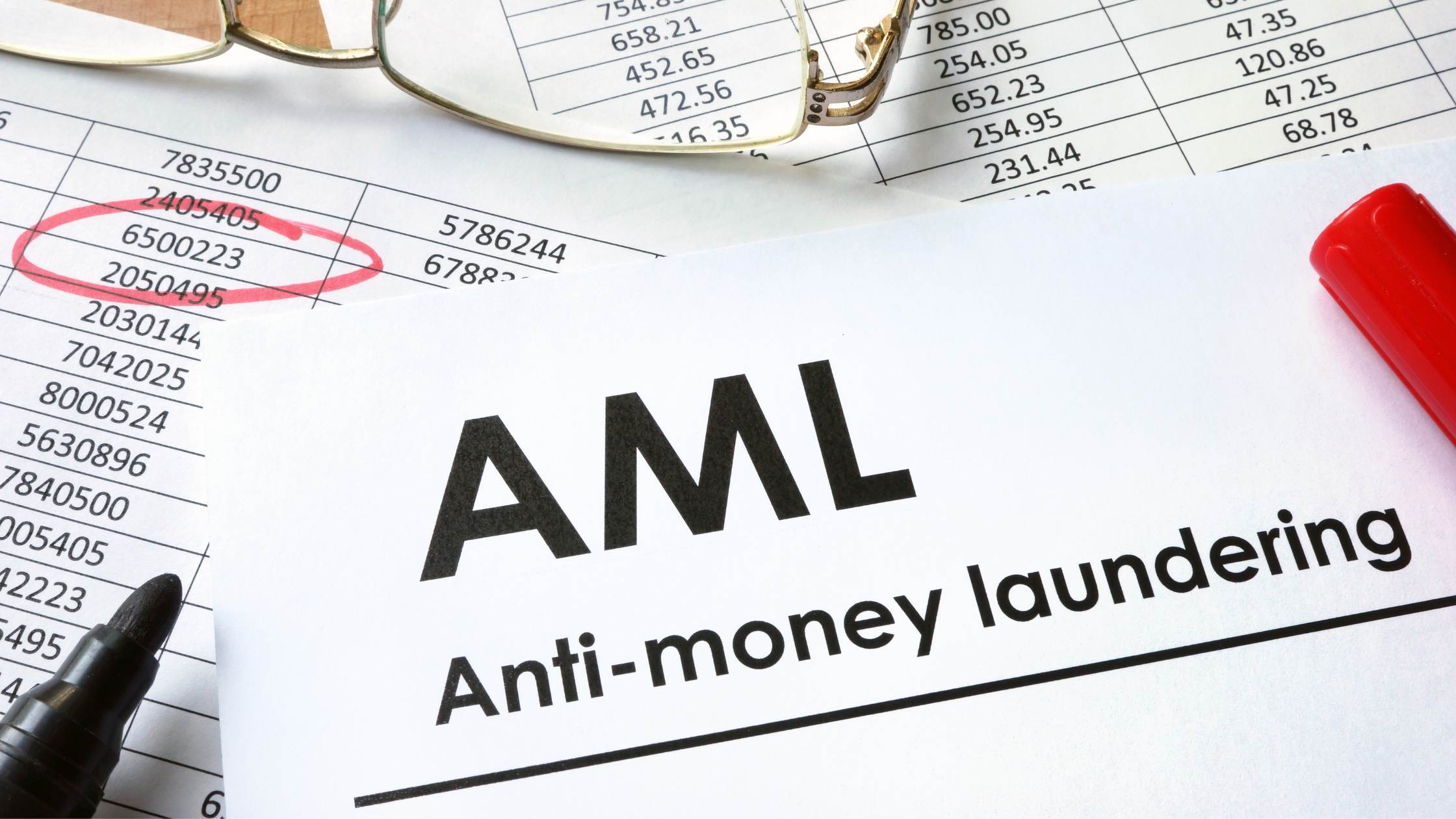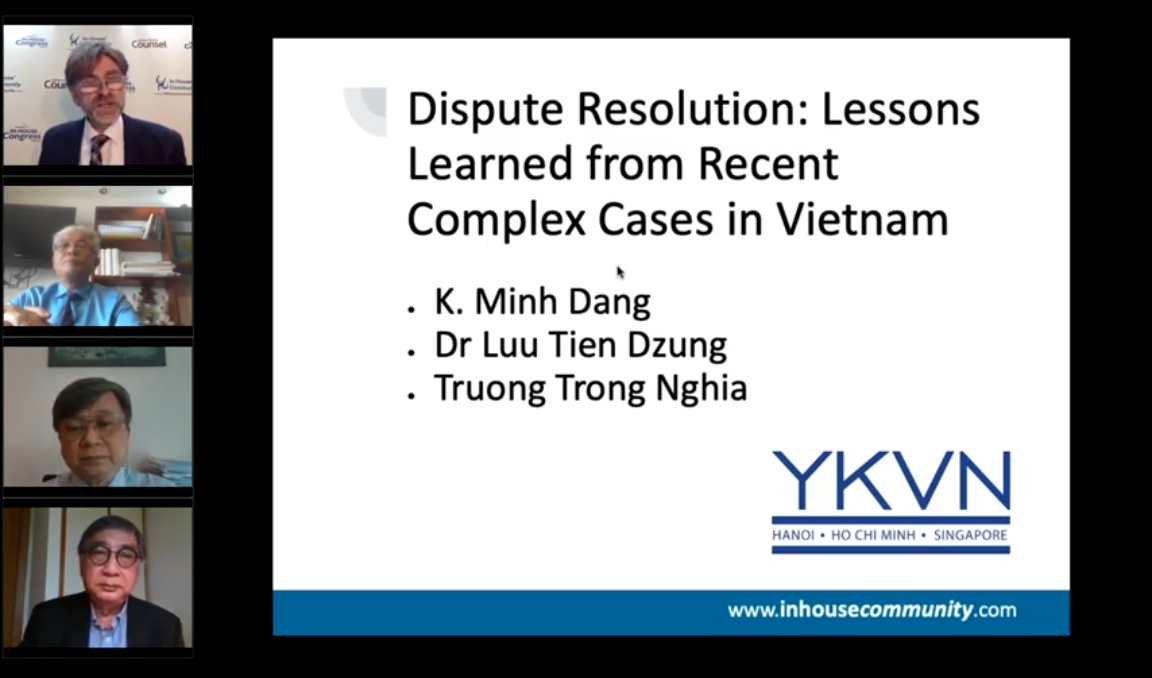I. AMENDMENT OF THE LAW ON ENTERPRISES AND PRACTICAL NOTE ON COMPANY’S DUAL LEGAL REPRESENTATIVE REGIME
On 11 January 2022, the National Assembly adopted Law No. 03/2022/QH15 on amendments and supplements to a number of articles of Public Investment Law, Law on Public-Private Partnership Investment, Law on Investment, Law on Residential Housing, Law on Bidding, Electricity Law, Law on Enterprises, Special Consumption Tax Law, and Law on Enforcement of Civil Judgment (collectively, the “New Amendment Law”). The New Amendment Law took effect on 1 March 2022. Vote-counting method at General Meeting of Shareholders (“GMS”)
1. Vote-counting method at General Meeting of Shareholders (“GMS”)
Previously, Article 148 of the Law on Enterprises provided that the voting threshold of shareholders at a meeting of the GMS was determined based on the number of votes of all participating shareholders, regardless of whether these shareholders cast their votes or not. However, under the New Amendment Law, such voting threshold is now determined based on the number of votes of participating shareholders who cast their votes.
2. Requisite signature for effectiveness of the meeting’s minutes of Members’ Council (“MC”) or Board of Director (“BOD”)
Pursuant to a former provision of the Law on Enterprises, the meeting minutes of MC (with respect to a limited liability company) or BOD (with respect to a joint stock company) require signatures of the chairman of the meeting and the person who prepares the meeting minutes. However, their refusal to sign did not invalidate the meeting minutes as long as other members attending the meeting have all signed the meeting minutes. This provision could result in a circumstance that any member of MC or BOD (who attended the meeting and voted against the MC or BOD resolutions) may invalidate the meeting minutes by refusing to sign it. To avoid this situation, the New Amendment Law now provides that only shall the signatures of all attending members of MC or BOD who agree to pass the meeting minutes be sufficient to validate the meeting minutes in case where the chairman of the meeting and/or the person who prepares the meeting minutes fail to sign thereon.
3. Practical note on company’s dual legal representative regime
The Law on Enterprises allows a company to have more than one legal representative (the “LR”). In practice, it is also common for a company to have multiple LRs (usually two LRs who are nominated from two different sides, called as “dual-LR regime”). The dual-LR regime would bring certain advantages to the company’s operations, such as (i) the company could be flexible with its legal compliance since the law requires that a company have at least 01 LR residing in Vietnam unless he/she has authorized another individual to perform his/her rights and obligations during his/her absence from Vietnam; or (ii) this could deal with the case when a single LR is absent from office/Vietnam to sign documents on behalf of the company; or (iii) this could be a compromising point to balance the rights and benefits of the parties in a joint venture company (i.e. one may oppose that all powers to represent the joint venture to be concentrated in only one LR as nominated by a party while other parties do not have it in favor).
However, one should be mindful when transacting with a company having dual-LR regime. According to Article 12.2 of the Law on Enterprises, the rights and obligations of each LR must be specified in the company’s charter if such company has more than one LRs – failure to do so, each LR will have equal rights to act for and on behalf of the company toward third parties. This regulation is clear; however, the charter (especially charter of a private company) is not a document made available in public domain. Thus, although counterparties can check and verify the names and titles of LRs of the company as recorded on its Enterprise Registration Certificate which are made publicly available on the National Business Registration Portal, they in many cases cannot check and verify the details of powers and obligations allocated to each LR of the company before they enter into (and subsequently, perform) the contract(s) with the company, unless such counterparties run a careful corporate due diligence over the company. Thus, for avoidance of potential dispute over the signing authority of the LRs in case of dual-LR regime, counterparties should request the company to provide the company’s charter (latest version) for review and verify, among others, the authority of each LR and person who will be a signatory acting for and on behalf of the company under the contracts to be entered with them.
II. GOVERNMENT’S DETAILED GUIDANCE ON IMPLEMENTING INVESTMENT REGULATIONS IN VIETNAM
On 18 April 2022, the Special Working Group of the Prime Minister issued Official Letter No. 2541/CV-TCT (“OL 2541”) providing detailed guidance on certain contents for implementing investment projects in accordance with laws. Pursuant to OL 2541, the Special Working Group of the Prime Minister has provided responses to eighty-eight (88) questions related to (i) preparation for investment projects and the selection of investors, project lands and the authorities appraising and granting the in-principal approval (“IPA”) to the investment projects; (ii) implementation of investment projects, including the deposits for investment project implementation; and (iii) termination of investment projects. Below are some interesting Q&As under OL 2541.
1. Is the investment project on development of industrial zone infrastructure subject to the requirements for land use right auction or bidding for selection of investors?
The investment project on development of industrial zone infrastructure and/or processing zone infrastructure will not be subject to the requirements for land use right auction or bidding for selection of investors pursuant to Article 14b of Government’s Decree 43/2014 guiding the Land Law (as amended).
2. Which authority will grant the IPA for an investment project having mixed objectives of golf course, tourism, entertainment and hospitality?
According to Article 29.1 of Government’s Decree 31/2021, in case where an investment project having objectives and contents for which the IPA is approved by different levels of authority, the highest-level authority will grant the IPA for the entire project.
3. Is an IPA required for minerals mining projects [implemented] by way of minerals mining right auction? If an IPA is required, would the minerals mining right auction be organized before or after IPA is issued?
According to Article 32.1 of the Law on Investment, (i) investment projects for which the State is requested to allocate or lease land without auction and/or bidding and (ii) investment projects for which it is requested to change the land-using purpose(s) must be subject to an IPA issued by the provincial-level People’s Committee.
Based on the above provision, an IPA shall be required for minerals mining projects (which wins the minerals mining right auction) in case there is a request for land allocation or land lease without auction and/or bidding or change of land-using purpose(s).
The auction for minerals mining right shall comply with Article 16 of Government’s Decree 22/2012. Accordingly, IPA is not required to be included in the application dossier for minerals mining right auction.
4. For investment projects using land (large area, multiple objectives, including: urban, services, commercial, sports, golf course, etc.), is it required to separate the golf course project as an independent project for implementation?
The requirement to separate the golf course project as an independent project from a tourism area and/or general entertainment services project including golf course under Article 10.2 of Government’s Decree 52/2020 was repealed and therefore has no longer been applicable by Article 107.1 of Government’s Decree 31/2021.
5. The provision that the authority from which the appraisal is sought shall respond and be responsible for such response, failure to so respond means a consent is not feasible in reality because when being submitted to the provincial-level People’s Committee, it is not agreed by the provincial-level People’s Committee, which requires re-appraisal and takes time. How to deal with this situation?
According to Article 6.2(b) of Government’s Decree 31/2021, during the specified period, the authority from which the appraisal is sought shall respond and be responsible for such response under their functions and duties; failure to so respond within the specified period shall be deemed to have consented within their scope of management.
Therefore, the provincial-level People’s Committee is requested to instruct local departments and agencies for better cooperation in providing comments on and appraisal of investment projects in a timely manner in accordance with the Law on Investment and Government’s Decree 31/2021.
6. Shall the investor’s ability to satisfy financial requirements in accordance with Article 14.2(a) of Government’s Decree 43/2014 be assessed before the land allocation or as at the time of assessment for issuing the IPA?
The procedure for granting of IPA in accordance with the Law on Investment and procedure for land allocation in accordance with the Law on Land are separate procedures.
Regarding the procedure for granting of IPA, according to Article 33.4 of the Law on Investment, appraisal of the proposal for granting of IPA and approval on investors at the same time includes appraising the ability of the investor to satisfy the conditions for land allocation and/or land lease in case of land allocation and/or land lease without auction for land use right, bidding for selection of investors and the ability of the investor to satisfy the conditions for change in land using purpose(s) (with respect to projects of which the change in land using purpose(s) is requested).
According to Article 31.8 of Government’s Decree 31/2021, items of appraisal of the proposal for granting of IPA and approval on investors at the same time includes: provisions set out in Article 33.4 of the Law on Investment; legal basis, conditions for approval on the investor in accordance with Article 29.1 of the Law on Investment and Article 29 of [Government’s Decree 31/2021]; assessment on ability [of the investor]to satisfy the requirements in accordance with the laws on construction, residential housing, urban development and properties trading (with respect to investment projects for construction of residential houses, urban areas, properties trading).
Based on the above provision, at the time of assessment for issuing the IPA, the authority in charge of the project appraisal shall assess the ability of the investor to satisfy the conditions for land allocation and/or land lease, change of land use purpose(s) with respect to investment projects. Specific conditions for the person(s) being allocated and/or leased the land or allowed for change in the land using purpose(s) by the State to implement investment projects are set out in Article 14 of Government’s Decree 43/2014.
7. How to obtain the IPA for urban area project or urban renovation project in the case of land revocation pursuant to Article 62 of the Land Law but not yet in the list of land revocation since the provincial People’s Committees in practice only approve the list of land revocation for the projects having been granted with the IPA(s)?
Pursuant to Article 45.3 of the Land Law 2013 and Article 56.6 of Circular 29/2014, it can be interpreted that the provincial People’s Council only ratifies the list of investment projects for which the land needs to be recovered after the investment projects have been granted with the IPA(s).
However, Article 56.6 of Circular 29/2014 has been amended by Article 46.6 of Circular 21/2021 since 1 February 2022, according to which the requirement for obtaining the IPA (for the project not using the State budget) before approving the land revocation was abolished. Therefore, current land regulations do not require for obtaining the IPA before approval on the list of investment projects for which the land needs to be recovered.
8.What are the papers evidencing the land has been (or has not been) cleared (if any), documents evidencing the project is not on the list of land recovery-required projects as approved by the provincial people’s council?
According to Article 45.3 of the Land Law, “Provincial-level People’s Committee shall submit the list of land recovery-required projects set out in Article 62.3 of [the Land Law] to the Provincial-level People’s Council for approval before giving consent to the annual land use plan at district level”.
In addition, according to Article 29.5(a) of Government’s Decree 31/2021, the IPA-issuing authority shall consider issuing approval on both investment policy and the investor in case where the investor having land use right is the one who is using the land allocated, leased or recognized by the State or as a result of acquiring land use right in accordance with the laws on land and at the time of applying for IPA, the land being used by the investor is not on the list of land recovery-required projects for the purposes of national defense and security, land recovery for socio-economic development for national and public interests that has been approved by the Provincial-level People’s Council.
Therefore, [relevant parties] can rely on the list of land recovery-required projects in accordance with Article 45.3 of the Land Law to determine the projects not being on the list of land acquisition-required projects. It is noted that the above answer in OL 2541 has not specifically dealt with the question as to what are the papers evidencing the land has been (or has not been) cleared.
9. Must the investors complete the acceptance of construction works to be refunded with the deposit as stipulated in Article 26.9(b) of Decree 31/2021 since this requirement has caused difficulties for investors such as lots of costs, cumbersome procedures and time-consuming for the acceptance of construction works to be issued pursuant to the construction regulations?
The requirement to complete the acceptance of construction works as a condition for returning the deposit to the investors as prescribed in Article 26.9(b) of Decree 31/2021 is necessary to ensure that the investment projects are performed in accordance with the registered investment schedule as committed by the investors.
10. How many days after receiving the IPA must the investor proceed with the deposit procedure to secure the project implementation?
Article 26 of Decree 31/2021 does not set out time limit for the investor to proceed with the procedure for making deposit after issued with the IPA in order to secure for the project implementation. Instead, this clause only provides that the deposit obligation shall be fulfilled before the land compensation, support and resettlement plan is implemented or before decision on land allocation, land lease, or change of land use purpose is issued.
11. Commercial and service investment projects (not housing projects) that have been granted with the IPA under the Law on Investment 2014, now proposing to expand the project land area, would it be required to conduct procedure for amendment to the IPA or conduct bidding procedures to select investors for implementing the project?
Pursuant to Article 117.3 of Decree 31/2021 and Articles 41.3 and 29.4 of the Law on Investment, there are two scenarios as follows:
- If the investor has had the land use right or the investment project located at the expanded land area being subject to the IPA and investor acceptance pursuant to Article 29.4 of the Law on Investment, it is required to amend the IPA to expand the land area of the project; and
- If the expanded land area is subject to auction or bidding procedures, it is required to conduct auction of land use rights or bidding for investor selection
12. The tourism project was granted with investment certificate with a term of 50 years from the issuance date. During the operation, the construction works were degraded, then the Company upgraded, renovated the works and applied for increase of the operation terms of the project to 50 years from the amendment date. Could the investor register to amend the project term of 50 years from the amendment date?
According to Article 27.1 of Decree 31/2021, the term of investment project starts from the 1st issuance date of the investment decision, the IPA or the investment registration certificate (the “IRC”). With respect to the investment project having the land allocated or leased by the State or having the land use purpose converted by the State, the term of investment project starts from date when the investor receives land allocation decision, land lease decision or land use purpose conversion decision, respectively. In the event that the investor has received such land decision(s) but the land hand-over is delayed, the term of investment project will start from the actual land hand-over date.
Therefore, the investment project that has been granted the IRC having a term of 50 years from the issuance date will not be allowed to increase the operation terms to 50 years from the amendment date. In case where the term of the investment project expires, the investor shall carry out procedures for extending the operation term of the project as stipulated in Articles 27 and 55 of Decree 31/2021.
13.What is the project transfer procedure for a project having not completed construction or having only been partially put into operation?
Pursuant to Article 46.2 of the Law on Investment, the investor shall follow the procedures for transfer of the investment project in part or in full as follows:
- For an investment project in which the investor has been approved in accordance with Article 29 of the Law on Investment and the investment project has been issued with an IRC, the investor shall follow procedures for amendment to the investment project as stipulated in Article 41 of the Law on Investment; or
- For an investment project other than that discussed in paragraph (i) above, the transfer of the investment project or transfer of asset ownership shall be carried out in accordance with the Civil Code, the Law on Enterprises, the Law on Real Estate Business and other relevant regulations of laws.
Regarding the transfer of investment projects associated with transfer of land use rights and assets attached to land, the Land Law provides for conditions for sales and purchase of assets attached to the land leased from the State with annual land rental payment, conditions for transfer of land use right in the housing investment projects, infrastructure construction projects for transfer or lease, etc.
Article 49 of the Law on Real Estate Business provides for the conditions for transfer of all or part of a real estate project.
14. Why is it regulated that an investment project could be terminated by the licensing authority if such investment project is suspended but only after being imposed with administrative sanction(s)?
Article 47.2 of the Law on Investment provides that the competent investment licensing authority will decide on the suspension of an investment project in the event that the investor does not comply with the IPA and the IRC, and it still commits the violation despite that it has already been administratively sanctioned.
The condition [for the investment licensing authority’s decision on termination of investment project] that the investor must be previously imposed with administrative sanction(s) is to ensure the transparency of the project termination process and serving for the interest of investors and also to avoid disputes that could happen to arise later.

















 Vietnam International Law Firm (VILAF-Hong Duc)
Vietnam International Law Firm (VILAF-Hong Duc) Ngoc Anh Bui
Ngoc Anh Bui Tung Ngo
Tung Ngo Anh Dang
Anh Dang Phong Tran
Phong Tran Linh D. Nguyen
Linh D. Nguyen Quynh Pham
Quynh Pham Trung Vu
Trung Vu Hien Truc Nguyen
Hien Truc Nguyen Hung Q. Nguyen
Hung Q. Nguyen Hao Nguyen
Hao Nguyen Duyen Ha Vo
Duyen Ha Vo Hien Tran
Hien Tran Ha H. Luu
Ha H. Luu Ngoc Luong Trinh
Ngoc Luong Trinh







